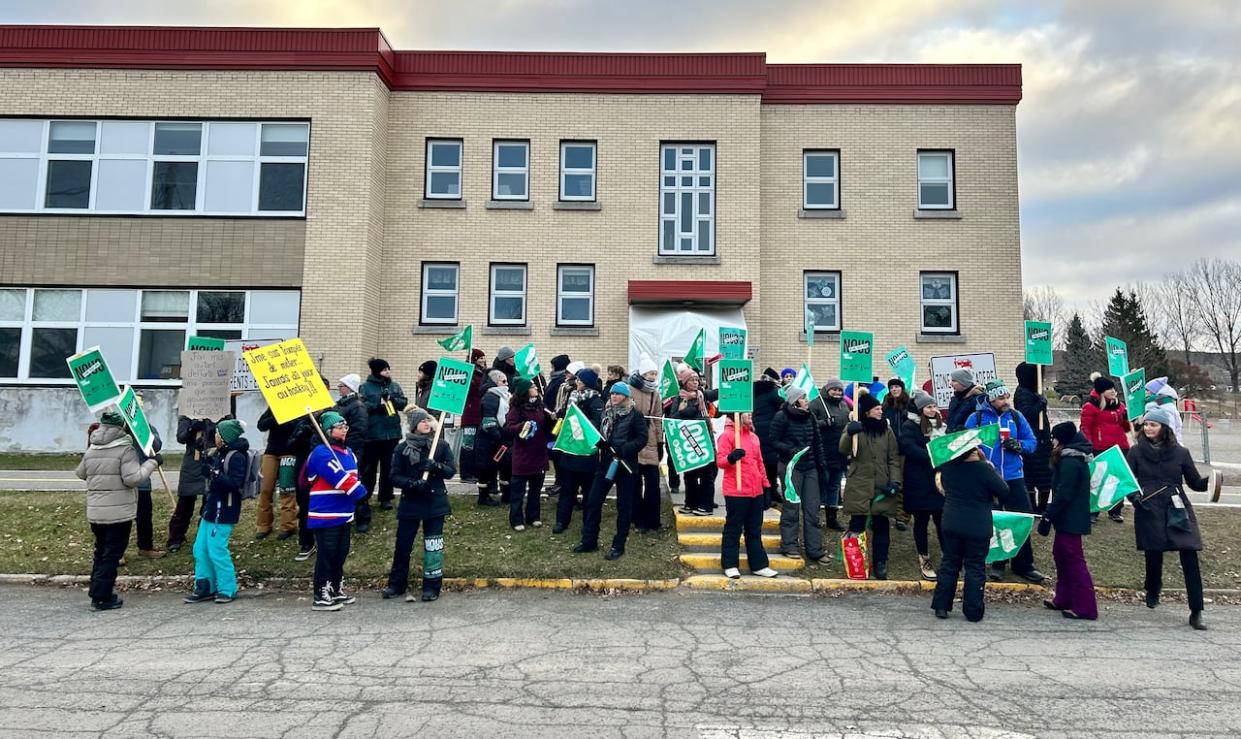Quebec public sector workers begin 3-day strike, shuttering schools and hitting health care

With Quebec's public schools closed for the majority of the week, Danielle Desrosiers fears not only for her daughter's educational success, but also her well-being.
Carly, 21, has special needs and attends Wagar Adult Education Centre in Côte Saint-Luc, a city on the island of Montreal.
A provincewide public sector strike that started Tuesday morning is keeping schools closed until Thursday and maybe even longer in some parts of the province.
"For my daughter, it's all about routine and structure and this really interrupts her well-being," Desrosiers said.
Some 420,00 members of a group of Quebec public sector unions known as the common front — Front commun — walked off the job Tuesday, launching a three-day strike that will affect the province's health, education and social service networks.
The strike is scheduled to last until 11:59 p.m. Thursday.
Meanwhile, a union that isn't part of the common front, the Fédération interprofessionnelle de la santé du Québec (FIQ) — which represents 80,000 nurses, licensed practical nurses, respiratory therapists and other health professionals — will be striking on Thursday and Friday.
A separate union, the 65,000-member Fédération autonome de l'enseignement (FAE), will be on strike indefinitely as of Thursday, resulting in the closure of several school boards across Quebec, including Montreal's largest French-language school district, the Centre de services scolaire de Montréal.
The FAE said even though their members will stop drawing their salaries during the strike, they're ready to stay on strike for as long as it takes.
Conciliator appointed for common front negotiations
Less than 24 hours before the strike began Tuesday, Quebec's labour minister Jean Boulet announced a conciliator was being called in to help contract negotiations. It came in response to a request from the common front.
The FAE and the FIQ are not currently requesting a conciliator.
The common front has rejected Quebec's latest contract offer — a 10.3 per cent salary increase over five years and a one-time payment of $1,000 to each worker.
Unions haven't said publicly whether they've made a counter-proposal, but their previous demands have included a three-year contract with annual increases tied to the inflation rate.
While the conciliator will assist with the negotiations, their recommendations won't be binding.
And regardless of what the unions want or the conciliator recommends, Quebec Treasury Board President Sonia LeBel said there are some demands the province simply cannot meet due to staffing shortages.
LeBel said she does not have any teachers to add overnight, but she is offering to put teaching aides in classes instead.
Eric Gingras, president of the Centrale des syndicats du Québec (CSQ), said, "the main thing is not going on strike. The main thing is getting a deal done, and that's the thing we're hoping we're able to do in the next weeks."
He said negotiations are happening more in the media and online than at the appropriate tables. François Enault, with the Confédération des syndicats nationaux (CSN), said the conciliator will put pressure on both sides to set dates, meet and "try to find some solutions."


